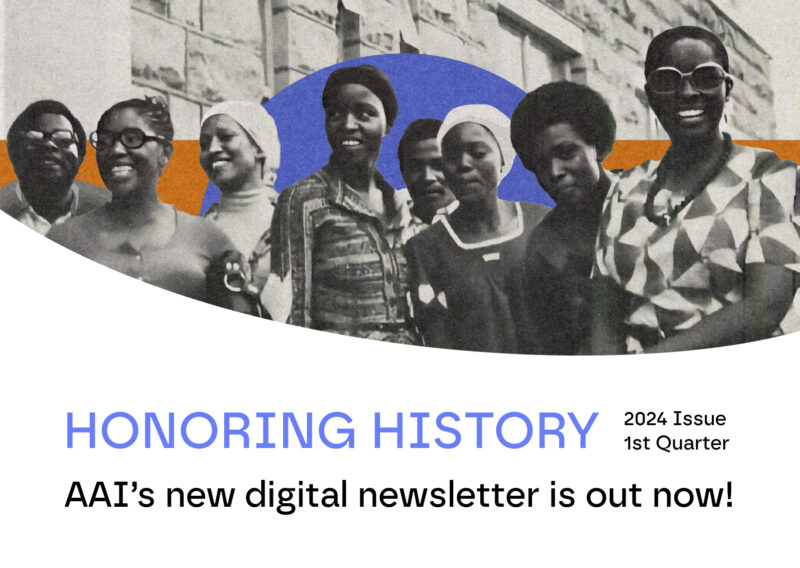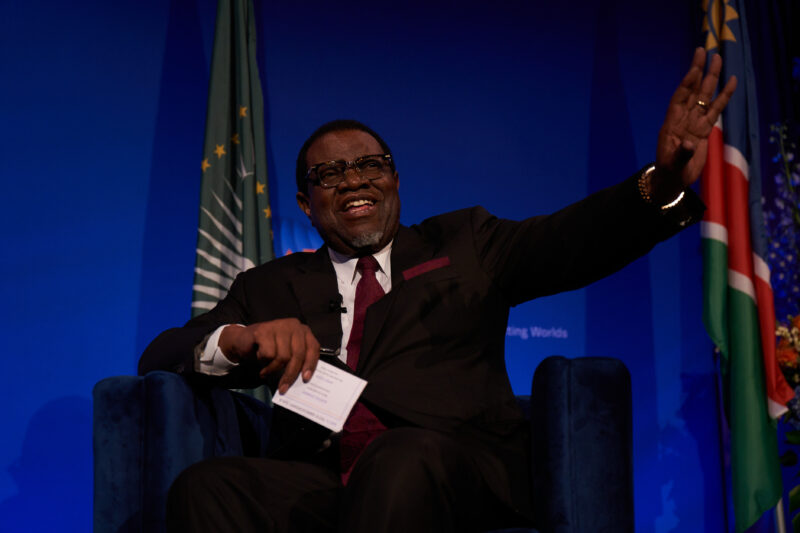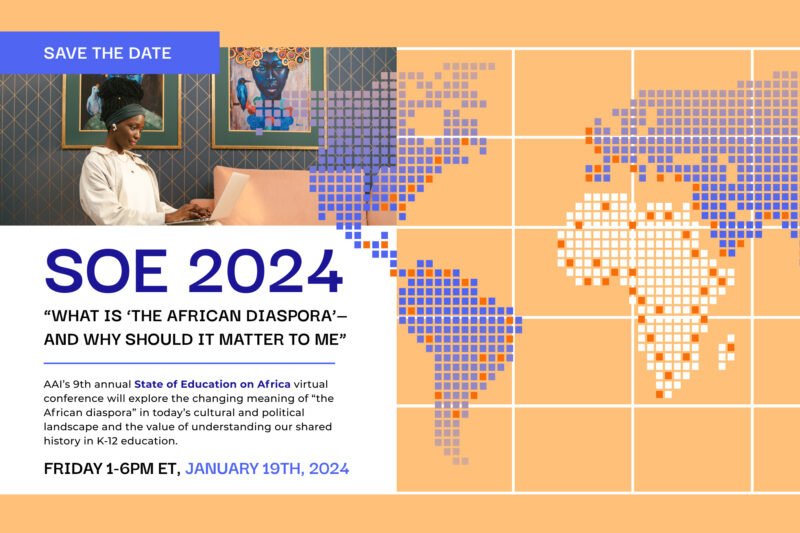Increasing Competition and Reducing Fees Can Help Harness Remittances for Economic Development
While remittances to Africa are helping to reduce poverty in individual households in sub-Saharan Africa, panelists from top financial institutions and the African Diasporan community agreed that channeling remittances flows through collective investment schemes and other innovative approaches are necessary to maximize its impact for sustainable development.
The Africa-America Institute’s Speaker Series panel discussion, “Can Remittances from the African Diaspora Promote Economic Growth in Africa?”, took place on June 5 in New York City.
Worldwide, Africans in the Diaspora sent home to their relatives nearly $60 billion in remittances in 2012, exceeding official development assistance. Moderated by Solome Lemma, Co-Founder and Director of Africans in the Diaspora, the panel discussion explored whether remittance flows, which benefits some 120 million people, can boost economic growth and prosperity on the African continent.
“I don’t think remittances are the panacea for development,” said Dr. Sonia Plaza, senior economist on The World Bank’s Migration and Remittances Team, who spoke via skype.
“Remittances [are private transactions and] cannot replace the government’s role,” Plaza said. Co-author of a major World Bank analytical survey of migration and development for the Africa region, Plaza said it’s up to African governments to develop, grow and diversify their economies, emphasizing that remittances are not the solution to economic development in Africa.
TMS (Teddy) Ruge, Chief Marketing Officer of Redcore Money Transfer and Founder of Remit.ug, a mobile remittance transfer service serving the Ugandan Diaspora, said his company is exploring options for money senders to contribute to their country’s development process by donating a percentage of their remittances to grassroots organizations and projects working to fight poverty.
“We can think creatively, but [the solution] needs to come from the people responsible for development,” Ruge said about the responsibility of African governments and other international development institutions in promoting greater economic growth and development.

TMS (Teddy) Ruge, Chief Marketing Officer of Redcore Money Transfer and Founder of Remit.ug, makes a point during the panel discussion.
Africans in the Diaspora pay more to send money to their home countries compared to other Diaspora groups worldwide — in some cases twice the global average, according to the World Bank. South Africa, Tanzania, and Ghana are the most expensive sending countries in Africa, with fees averaging 20.7 percent, 19.7 percent, and 19.0 percent.
Panelists agreed that increased competition among money transfer operators will help drive down the high remittances fees to African countries. Western Union and MoneyGram are the top money transfer companies in Africa.
“As long as we keep using those companies and saying, ‘Oh, we have no choice,’ they are going to keep doing what they are doing,” said Isseu Diouf Campbell, about the high remittances fees.
African mobile money transfer systems like Ruge’s Remit.ug and M-PESA in Kenya are allowing Diasporans to bypass the more expensive money transfer operators to send money directly to their relatives’ mobile phones for a fraction of the cost. Today, 31 percent of all money transfers are through mobile transfers.
Better regulatory practices would also make it less expensive for African Diasporans to send money home.
Ecobank, a pan-African banking group, is investing in making remittance services more convenient, reliable and cost-effective in Africa through electronic channels such as ATMs, said Linus Adaba, Group Manager, Remittance & Diaspora, at Ecobank Transnational Inc. Ecobank was the Exclusive Presenting Sponsor of the panel discussion.
Ecobank’s African Diaspora account offers banking services to Africans living in Africa, but away from their home country. The Pan-African bank plans to soon expand the services to those living outside of the continent.
The heavy tax burden and lack of consistent banking regulations across the African continent make the banking environment challenging for financial institutions. Consequently, financial institutions are forced to build their own platforms and tailor their services to each country’s banking law, said Adaba.
“We have our platforms scalable to adopt any policy that is out there in the countries in which we operate,” said Adaba.
Diaspora bonds or collective investment schemes where governments borrow money from Diaspora investors for a low interest rate to pay for infrastructure development projects is another avenue to direct funds from the Diaspora for large scale sustainable development initiatives.
Diaspora bonds have been issued in Nigeria, Kenya and Ethiopia, but trust between the government and the Diaspora community must be established for this collective investment scheme to be effective.
Gaining trust from potential remittances service customers in transferring money to relatives is also a factor that many African money transfer services face, Ruge maintained.
“You have to win new customers one at a time,” he said, noting that when his company launched some Ugandans assumed it was a “fraud”.
Diaspora funds should not be limited only to transferring money, but should also be tapped for engaging in trade and investment opportunities in their home country for a greater economic impact. Panelists called for African governments and banks to create more vehicles for Diasporans to invest in their home country’s stock markets.

Isseu Diouf Campbell, Photojournalist and Founder, Afrikanspot.com, speaks about why relatives in Africa need to hear about economic realities of life abroad.
Setting boundaries and managing the expectations of family members’ financial requests are major concerns that Diasporans living abroad must deal with. Panelists from the Diaspora spoke about the importance of having honest conversations with family members on the realities and financial struggles of living abroad.
“If you don’t want to create dependency, we have to be real with people back home and kill the misconception that if we come to America or Europe, it will be fine,” said Diouf Campbell. “We have to be honest with them and tell them what conditions we live in…. Unless we’re honest, I don’t think it will change.”




